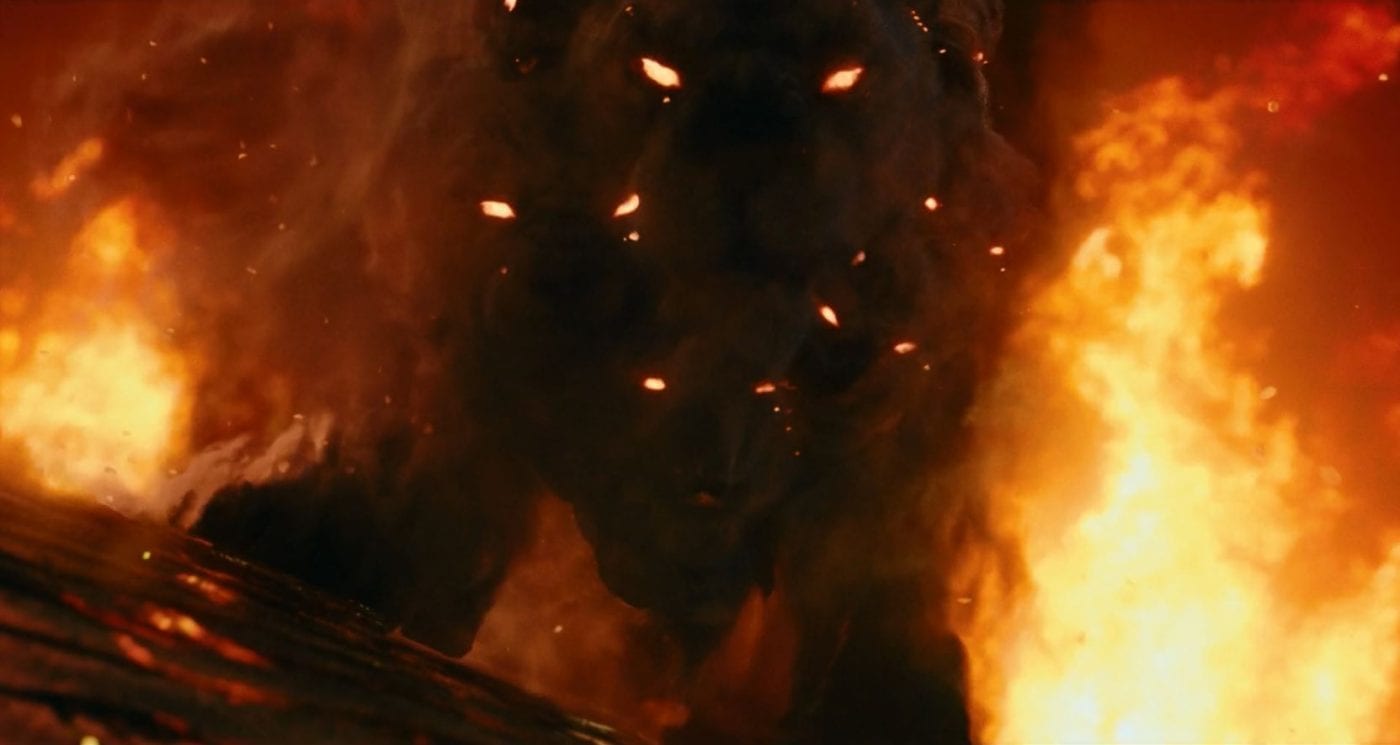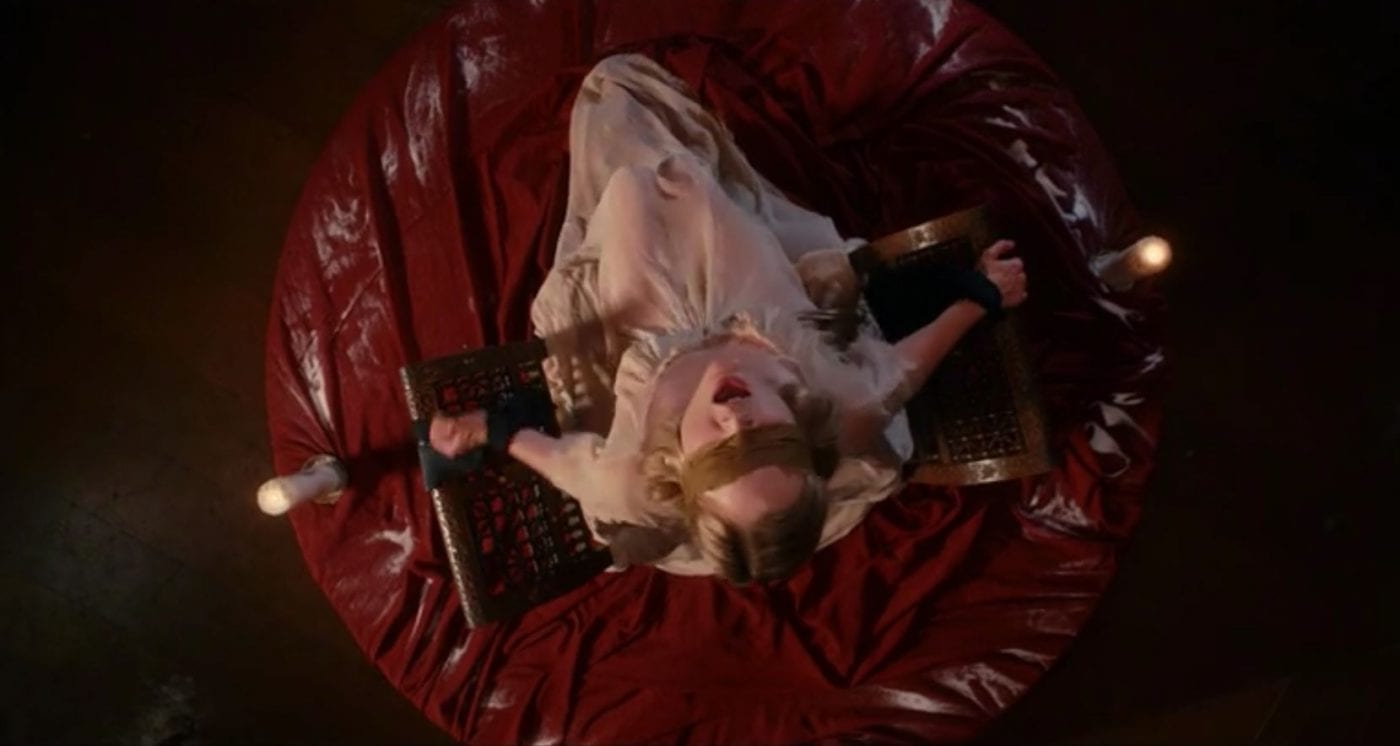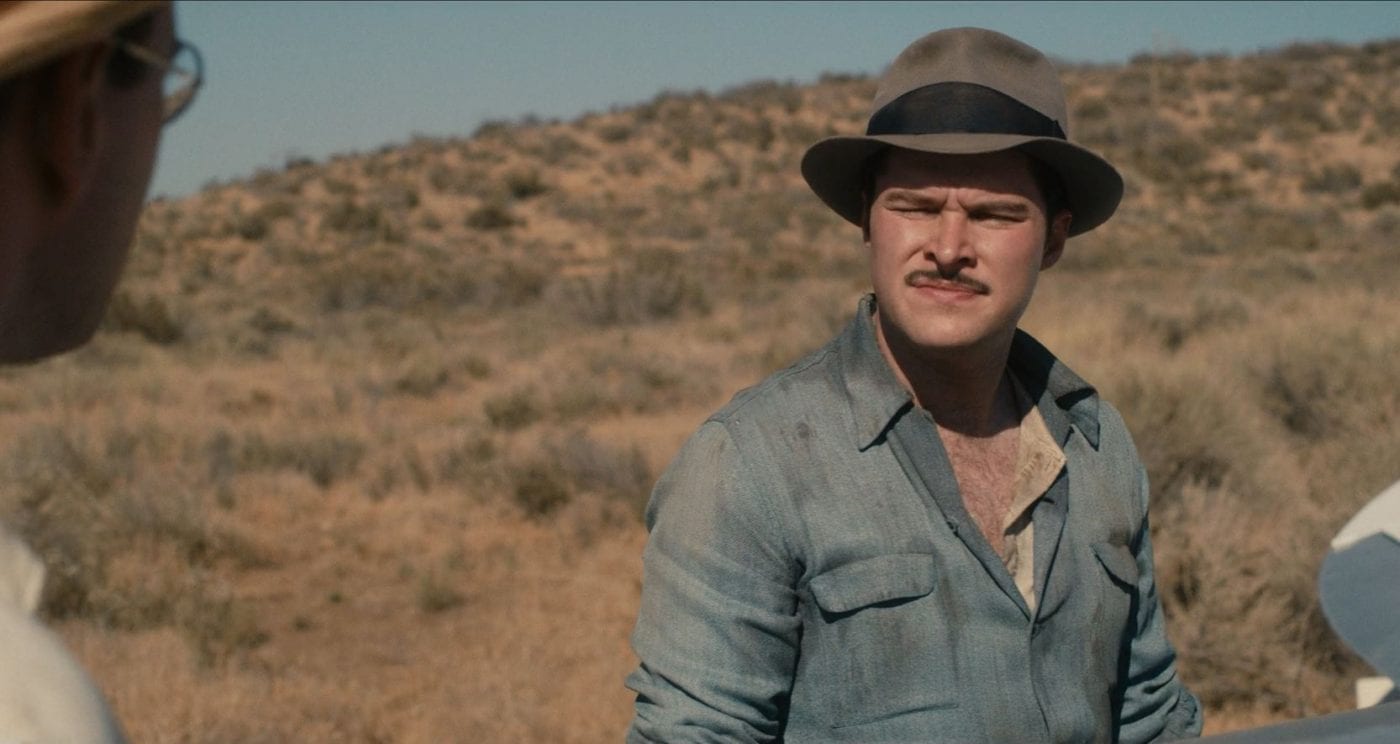This will be my final coverage of Strange Angel Season 1. There was some inevitability that it would end better than it began, having had episodes to stage the strange content. Jack Parsons’s story is unique, though it is not a particularly well-known one. An audience would require some buy-in to fully believe it, short of thirty minutes to an hour of Google research or actually picking up the biography. Still, this writer has to admit to not having completely fallen under its spell for all of the magic it attempted to conjure. If it were granted a Season 2, there is no doubt that it would take on a much darker tone, a tone that fans of Parsons before the series aired might have hoped for up front. And while it might assume a darker tone at that time, it would require more than tone to get audiences fully invested, in my opinion. The pulpy stylization of Parsons’s imagination remains with him through this season, distracting us from the deeper development of the narrative, while the stylization of Susan Parsons’s Occult therapy sessions draws us in. It is arguable that there is some design in that decision, but its effect on the audience is what I’m left to judge over its intentions.

In my first coverage of the series, I spoke to the imagery of Jack’s imagination, which reflected what he read in fantasy and science fiction. At the time, I thought it added a charm to the series. I continued to believe that in my mid-season review, but by show’s end, while it is certainly not the worst aspect of the show, I began to wonder if it was necessary before finally asking why it was included at all. In that early coverage I also looked at the character of Ernest Donovan as being too on-the-nose and a bit of a nuisance; not to Jack but to the story. Then by my mid-season coverage, I felt that his character was beginning to make sense and that I was seeing his utility. This remained somewhat true until maybe episode 9, when Parsons tells him to get out of his life. If the rest of the audience felt the same way that I did, that would have been the perfect time for actor Rupert Friend to exit the series with no residual feeling of loss on our part. This is not due to any effort on Friend’s acting. The invention of his character simply didn’t provide the impetus needed for us to believe Jack and Susan would find interest in the occult.
Let’s look at how it unfolded in the biography, because my sense is that someone at some point was asked to include a part for an actor in the character of Ernest. It is more insinuated in this series that Parsons is a part of Ernest’s “working,” a kind of personal occult task required to advance in the belief system. Jack Parsons’s introduction to the OTO was not by accident as the series portrays. His first visit was in January of 1939. According to Pendle’s biography, which, of course, the series takes its name from, Jack and Helen joined of their own accord.
The house’s guest registrar shows Parsons visiting only once more that year, for a party celebrating [Wilfred T.] Smith’s birthday. His interest in Thelema and Crowley, however, was growing. Smith judiciously began to sell him copies of Crowley’s books, which he would study at home. Seeing her husband’s mounting interest in Crowley, Helen also began to read the books. Although she was initially shocked by Crowley’s sexist attitudes, she, too, was gradually drawn to what she read. By the end of 1939 Parsons owned a respectable collection of Crowley’s work. The age of Horus, the wink of the grandeur of the past, even if it was wearing a robe made out of old theater curtain, seemed to be infinitely more in tune with his romantic leanings than Communism or even science fiction … Wilfred Smith wanted to initiate Parsons into the OTO as soon as possible, although Parsons’ rocket work and Helen’s initial reluctance meant the initiation would have to be delayed for a while. Nevertheless, Parsons’ scientific learning, his natural aristocratic manner and his wealthy countenance all gave Smith hope that Parsons could be the “Rich Man of the West” he had been looking for all these years.[1]
Smith seems to be the access point for Ernest’s character, though neither he nor Parsons required the eccentricities invoked by the writers. The motivation of money and promotion is much more interesting than his character’s motivation in the series, and isn’t there something more exciting about Jack and Susan coming to the pariah religion with more agency than by external manipulation?

I admit to some fault in my negative approach to the series. The show looks great. Had AMC decided to pick it up, it might have looked right alongside its ongoing series. Even the characters’ stories, once divorced from the biography, might make an interesting show for some, but I came to this having had my interest piqued by Mark Frost’s The Secret History of Twin Peaks, which spoke to a much darker, stranger chapter in Parsons’s life. The title Strange Angel tells me to expect his life story. Even the biography knows to open with the true story demise of Parsons to bring us in. I do not envy the writers’ task to make an early rocket scientist’s endeavors of trial and error interesting while balancing the occult narrative to be edgy and tasteful to a general audience at the same time. Their efforts should be applauded, but ultimately, the series veers too far off a made-to-order strange and alluring story. Before closing, I would like to give credit to Bella Heathcote for giving us a Susan Parsons who evolved with the story. If I were to continue into Season 2, granting for one, it would be to continue the story of the true strange angel here in the fictional Susan Parsons.

[1] Pendle, George. Strange Angel: The Otherworldly Life of Rocket Scientist Jack Whiteside Parsons, (New York: Houghton Mifflan Harcourt, 2005), p. 152-153.

